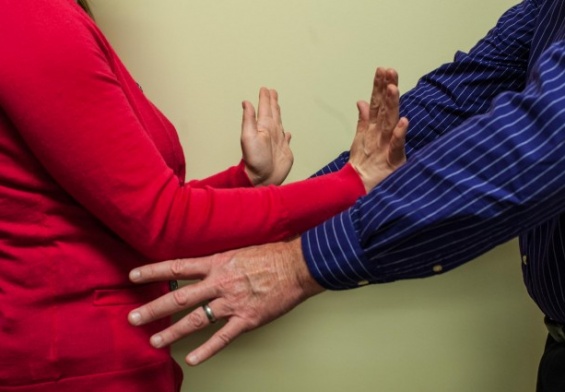Insurance is a crucial financial tool that protects individuals, families, and businesses from unexpected financial losses. Auto, homeowners, life, and health insurance policies offer coverage for various risks in exchange for regular premium payments. Understanding your insurance policy helps ensure you have the right protection when you need it. For help with a claim or legal issue, you can consult with an attorney.
Auto Insurance FAQs
What happens if I have a lapse in liability insurance?
If your liability coverage is canceled or not renewed, your insurance company must notify your state’s Division of Motor Vehicles (DMV). The DMV will then notify you and inform you of any penalties or required actions to reinstate coverage. If you ever face a claim dispute or legal issue, consulting an accident attorney in NJ can help navigate your options.
Are family members covered by my auto policy?
Yes, most auto insurance policies cover family members. The law defines a family member as a person related to you by blood, marriage, or adoption, who is a resident of your household. This can include a ward or foster child. It is important to list all family members who drive your vehicle on your policy.
Do I need to buy coverage when I rent a car?
In some cases, your auto insurance policy may provide coverage while using a rental vehicle. If you don’t know, contact your insurance agent to confirm the specifics of your policy. In cases with insufficient coverage, an accident attorney in NJ can lay out your legal options to recover damages beyond what the other driver’s policy provides.
What if the other driver’s insurance isn’t enough?
If you’re in an accident and the other driver’s insurance doesn’t cover your damages, you may need to rely on your underinsured motorist coverage.
Is flood damage covered by auto insurance?
Flood damage is usually covered if you have a Comprehensive coverage policy.
Homeowners Insurance FAQs
How much homeowners insurance do I need?
You should have enough homeowners insurance to rebuild your home if it is a total loss. The replacement cost should be based on construction expenses, not the market value, mortgage value, or tax assessment. If your home has unique features, such as stained glass windows or custom woodwork, make sure your policy accounts for them.
Does homeowners insurance cover water damage?
Homeowners insurance often covers sudden and accidental water damage. Damage from a burst pipe makes a good example. Yet, damage from gradual leaks or floods is usually not covered. You may need to buy separate flood insurance.
What if my insurer cancels or doesn’t renew my policy?
In certain states, like Massachusetts, insurers are not required to renew policies. But, if your insurer decides not to renew your policy, they must notify you at least 45 days before the policy’s end date.
Has my coverage changed recently?
Insurance companies sometimes adjust policy terms. These adjustments may affect coverage limits, exclusions, or premiums. Homeowners should review all notices from their insurer to stay informed about any changes.
Life Insurance FAQs
Do I need life insurance?
A simple way to answer this is by asking: “Do I have anyone dependent on my salary to sustain their standard of living?” If you were to die, would your family have issues covering the cost of your burial, rent or mortgage payments, and other bills? Would they have enough money to cover those and still maintain their normal life? If the answer to any of these is “No,” consider what life insurance options work best for you and your needs.
How do I choose the right life insurance company?
When selecting a life insurance provider, choose a licensed and reputable company.
- Decide how much coverage you need, for how long, and what you can afford to pay.
- Learn what kinds of policies will provide what you need and pick the one that is best for you.
- Do not sign an application until you review it to be sure the answers are complete and accurate.
- Do not buy life insurance unless you intend to stick with your plan. It may be very costly if you quit during the early years of the policy.
- Be sure to review your contract and understand exactly what is or isn’t covered.
- When you buy a policy, make the check payable to the company, not the agent.
What is the “free to look” period for life insurance?
The “free to look” period is a timeframe after purchasing a life insurance policy in which you can review the policy terms. During this period, you are allowed no less than 10 days from the date a life insurance policy was delivered to review and check the policy. A policy sold by mail order must provide a 30-day review period. If you change your mind, you can cancel the policy and receive a full refund.
Health Insurance FAQs
What does my health insurance cover?
Most health plans include essential health benefits. These include maternity and newborn care, preventive services, and prescription drug coverage. Yet, coverage details vary by plan. Most plans also can’t have pre-existing condition waiting periods.
Does it cost more to go outside my plan’s network?
Yes, using out-of-network providers usually results in higher out-of-pocket costs.
How do I know if my prescription drugs are covered?
To determine if your prescriptions are covered, check your insurer’s formulary, which is a list of approved medications.
Can I get health insurance outside of open enrollment?
After open enrollment ends, you can only enroll in a new health insurance plan if you qualify for a Special Enrollment Period. You can apply for Medicaid or the Children’s Health Insurance Program (CHIP) any time of the year.
Consult healthcare.gov for more information about health insurance in the United States.
Questions to Ask Before Purchasing Insurance
How do deductibles affect my premiums?
Policyholders may reduce their premium payments by raising their deductible for a claim.
Are there discounts available?
Many insurance companies offer discounts. It is important to ask about available discounts, which can help lower your insurance costs.
What is excluded in my policy?
Insurance policies often have exclusions, which are specific situations or events that are not covered. It is important to review the exclusions section of your policy to avoid surprises when filing a claim.
Understanding Your Insurance Coverage
Insurance protects you from financial hardship due to unexpected events. Having the right insurance offers peace of mind. But, insurance policies can be complex, so ask the right questions before making your decision.
Resources
https://www.ncdoi.gov/consumers/auto-and-vehicle-insurance/faqs-about-auto-insurance
https://www.insurance.wa.gov/questions-ask-when-comparing-health-plans
https://www.mass.gov/info-details/frequently-asked-questions-about-homeowners-insurance
https://www.tdi.texas.gov/tips/questions-to-ask-before-you-buy-home-insurance.html
https://difi.az.gov/home-insurance-questions-your-agent
https://www.ncdoi.gov/consumers/homeowners-insurance/questions-ask-your-agent




